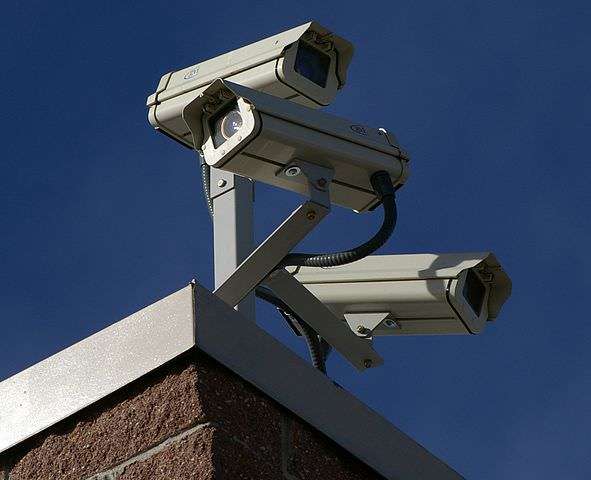ACLU and EFF Call Out Tennessee School District for Violating Students' Constitutional Rights

Some schools secretly spy on their students. Others make it official policy.
Last week the American Civil Liberties Union (ACLU) and the Electronic Frontier Foundation (EFF) joined together to send a letter to a Tennessee school board accusing the district's technology policy of grossly violating its students' First and Fourth Amendment rights.
The Williamson County Board of Education's "Acceptable Use, Media Release, and Internet Safety Procedures" grant school administrators broad, vaguely defined discretionary powers over the electronic devices and communications of some 35,000 students. These powers include the authority to restrict off-campus speech on social media sites, to search any electronic devices on school grounds without reasonable suspicion, and to access any communications sent or stored on the school's network.
The policy ominously states that "students are subject to consequences for inappropriate, unauthorized, and illegal use of social media," even when off-campus. The consequences include "loss of network privileges, confiscation of computer equipment, suspension…and/or criminal prosecution."
The policy also gives the district the ill-defined power to "collect and examine any device at any time for the purpose of enforcing the terms of this agreement, investigating student discipline issues, or for any other school-related purpose." Which roughly translates to "for any reason whatsoever."
More worrisome yet, administrators have the authority to search and read student communications on the district network, also without a modicum of reasonable suspicion: "All network users may be monitored at any time by authorized personnel."
All of this is done in the name of (surprise!) protecting The Children: "The district has taken measures designed to protect students and adults from obscene information and restrict access to materials that are harmful to minors."
In their letter, the ACLU and the EFF argue that the authority claimed by the district "infringes on students' fundamental constitutional rights" of free speech and freedom from unreasonable searches and seizures—rights that more than one judge has ruled don't stop at the school door.
The two civil liberties organizations picked up the case from parent Daniel Pomerantz, who says he was effectively coerced into signing a waiver subjecting his daughter to the district's policies, Wired reports:
He initially refused to sign the policy at the start of the school semester, but relented after the school prohibited his 5-year-old daughter from using the computers at Nolensville Elementary School without the agreement.
"The first time they were using the computers [in her classroom], they told her she had to go sit aside and do something else and she started to cry and complain…It was not a pleasant experience as a family. They told her it was all because of me, that [because] I wouldn't do this was why she couldn't learn on computers with all the other students."
The letter notes that "requiring students to sign an agreement waiving constitutional protections in order to participate in fundamental school activities is not permissible."
But perhaps the administrators are just preparing their charges for the world after school, where free speech isn't always free, unreasonable searches and seizures are considered reasonable, and all your communications belong to the government.
Editor's Note: As of February 29, 2024, commenting privileges on reason.com posts are limited to Reason Plus subscribers. Past commenters are grandfathered in for a temporary period. Subscribe here to preserve your ability to comment. Your Reason Plus subscription also gives you an ad-free version of reason.com, along with full access to the digital edition and archives of Reason magazine. We request that comments be civil and on-topic. We do not moderate or assume any responsibility for comments, which are owned by the readers who post them. Comments do not represent the views of reason.com or Reason Foundation. We reserve the right to delete any comment and ban commenters for any reason at any time. Comments may only be edited within 5 minutes of posting. Report abuses.
Please to post comments


The policy ominously states that "students are subject to consequences for inappropriate, unauthorized, and illegal use of social media," even when off-campus
WTF? I'm failing to see how anyone could argue that the public schools of today are anything more than indoctrination camps. This even goes way beyond that when they start creating orwellian authoritarian policies and then even begin to believe that their authoritah doesn't stop at school property lines.
This shit is outrageous. Do not send your kids to public school.
The policy also gives the district the ill-defined power to "collect and examine any device at any time"
"The policy"? "The district"?
Tar and feather "the people" behind this crap.
If they are willing to subject their own on-line activities to the same scrutiny and rules, I might give this a hearing.
Of course, it is easier to state that students are subject to consequences for inappropriate, unauthorized, and illegal use of social media, even when off-campus, than try to reform the education system itself. There are so many issues, from the cost of the college to custom admission essay writing. They should to concentrate more on academic activity issues, I think. If students are engaged in education process, there will be no need in such policies.